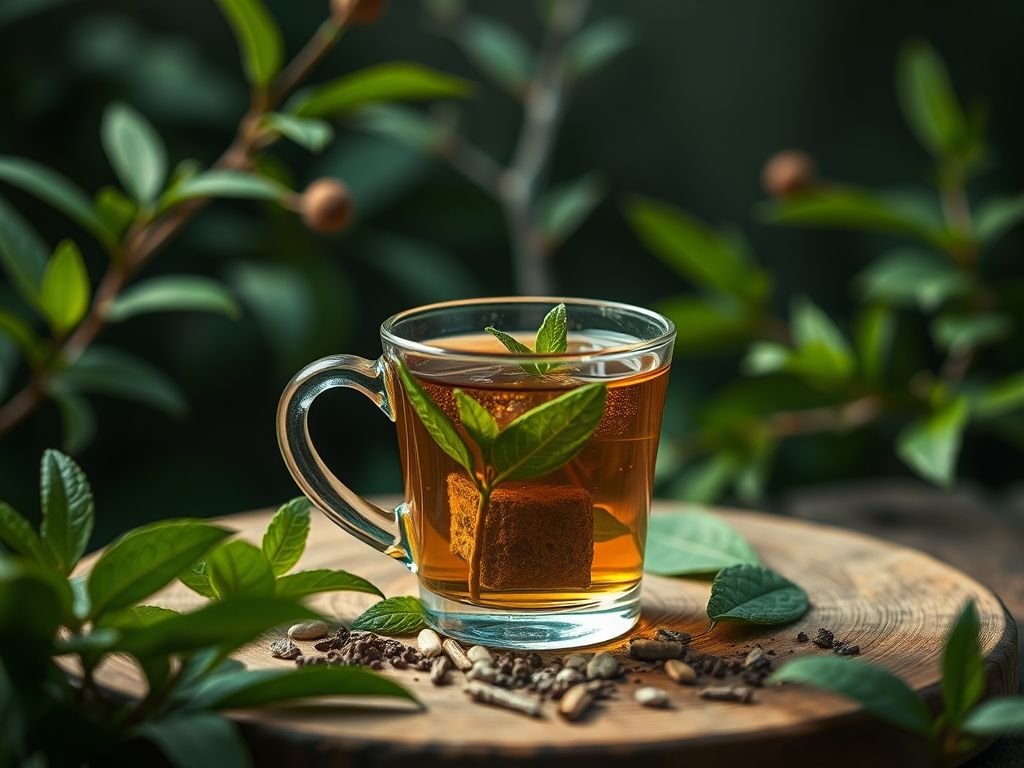What is Herbal Tea?
Herbal tea, often referred to as herbal infusions, is a beverage made by steeping various parts of plants, including leaves, flowers, seeds, or roots, in hot water. Unlike traditional tea, which is derived from the Camellia sinensis plant, herbal teas do not contain caffeine and can be enjoyed by anyone seeking a soothing drink with potential health benefits.
The Importance of Herbal Tea in Natural Health
Herbal tea has gained popularity over the years, especially among adults aged 25 to 50, who are increasingly interested in natural health solutions. With its wide variety of flavors and potential health benefits, herbal tea serves as a comforting alternative to sugary drinks and caffeinated beverages. By incorporating herbal teas into your daily routine, you can not only hydrate but also support your wellness goals, whether it's weight loss, anxiety control, or improved overall health.
Common Types of Herbal Teas
There are numerous types of herbal teas, each offering unique flavors and health benefits. Here are a few popular varieties:
- Chamomile: Known for its calming properties, chamomile tea is often used to promote sleep and reduce anxiety.
- Peppermint: Peppermint tea aids digestion and can help relieve headaches and sinus congestion.
- Ginger: Ginger tea is renowned for its anti-inflammatory properties and can help soothe nausea and digestive issues.
- Hibiscus: This vibrant tea is rich in antioxidants and may help lower blood pressure and improve heart health.
How to Prepare Herbal Tea
Preparing herbal tea is a simple process. Here’s a step-by-step guide:
- Choose your herbal tea (loose leaves or tea bags).
- Boil water to the appropriate temperature (usually around 200°F or 93°C for most herbal teas).
- Steep the herbs in hot water for 5 to 10 minutes, depending on your taste preference.
- Strain and enjoy your herbal tea plain or with honey, lemon, or your preferred sweetener.
Applications of Herbal Tea in Daily Life
Integrating herbal tea into your daily routine can be simple and beneficial. Here are some practical tips and applications:
- Morning Ritual: Start your day with a cup of ginger tea to invigorate your senses and boost metabolism.
- Afternoon Calm: Sip chamomile tea during your lunch break to reduce stress and promote relaxation.
- Evening Wind Down: Enjoy peppermint tea after dinner to aid digestion and prepare your body for restful sleep.
Potential Health Benefits of Herbal Tea
Herbal teas are often touted for their numerous health benefits, some of which are supported by research:
- Weight Loss: Certain herbal teas, like green tea and hibiscus, may assist in weight management by boosting metabolism and reducing appetite.
- Anxiety Control: Herbal teas, particularly chamomile and lemon balm, are known for their calming effects, making them excellent choices for anxiety relief.
- Digestive Health: Herbal infusions can soothe digestive issues and promote gut health, thanks to ingredients like ginger and peppermint.
Understanding herbal tea also involves exploring related concepts within herbal medicine:
- Herbal Remedies: These are plant-based treatments for various health conditions, often used in conjunction with herbal teas.
- Aromatherapy: The use of essential oils can complement the calming effects of herbal teas, enhancing relaxation and mood.
- Natural Supplements: Many herbs used in teas are also available in supplement form, providing concentrated doses of their benefits.
Conclusion
Herbal tea is more than just a refreshing beverage; it’s a versatile tool in the realm of natural health. By understanding the different types of herbal teas, their preparation, benefits, and practical applications, you can enhance your wellness journey. Whether you seek to lose weight, manage anxiety, or simply enjoy a soothing drink, herbal tea offers a myriad of options to support your goals.
As you explore the world of herbal teas, consider keeping a journal to track which blends resonate with you and how they impact your health. This reflective practice can deepen your connection to the herbs and enhance your experience.

